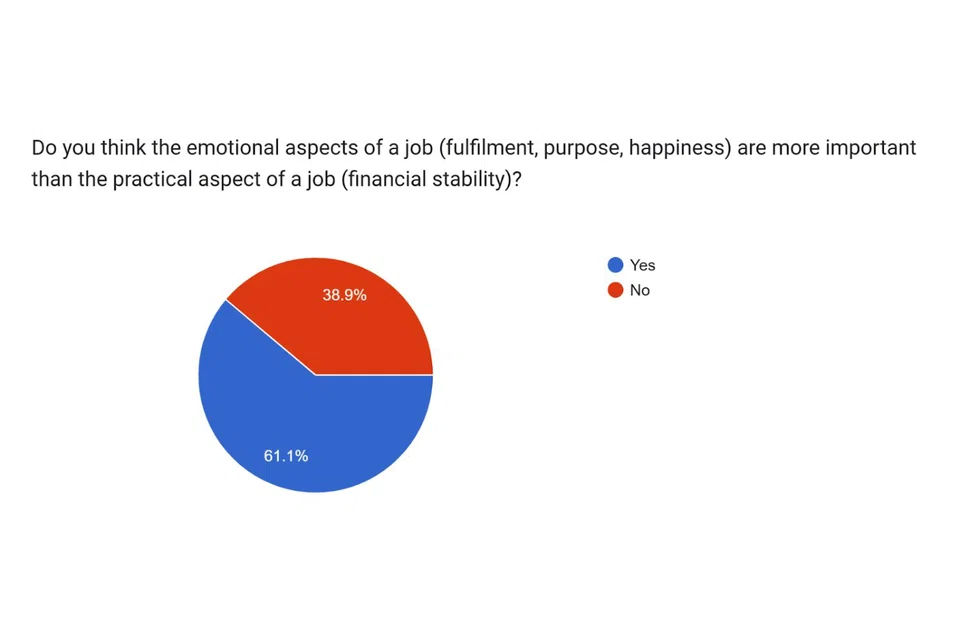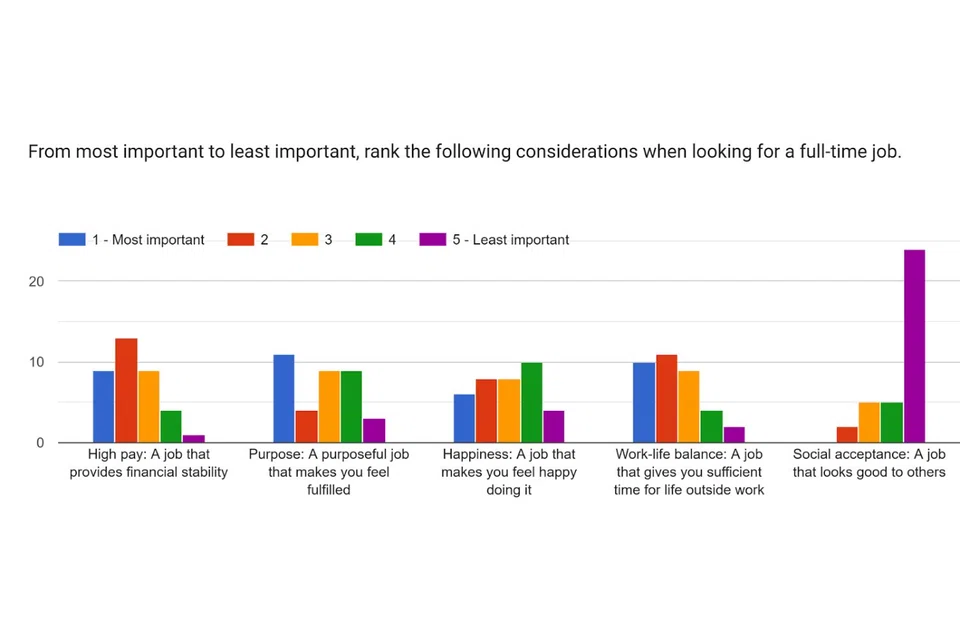Purpose over pay? What drives Gen Z's career choices
For today's youth, the job search is no longer a straightforward quest for a high salary. It has become a complex negotiation between pay, purpose, passion and personal well-being.
They must weigh not just the salary of a prospective job, but also the sense of fulfillment that comes from doing it. Others prioritise work-life balance, flexible working arrangements, and the freedom to explore hobbies.
In essence, young people are juggling many priorities when searching for the perfect role.
To understand these changing concerns, The New Paper conducted a survey of university students and fresh graduates aged 19 to 25. The survey found that many young job hunters now prioritise purpose and happiness over a high-paying job.

In fact, 61.1 per cent of respondents said the emotional aspects of a job - such as finding purpose and happiness in their work - are more important than practical considerations like financial stability.
For many, a purposeful job is directly linked to its long-term sustainability for the worker.
A 23-year-old graduate from Singapore Management University (SMU) said: "I believe being able to stay sane in a role is more important than the practical aspects. Otherwise, I won't be able to do my job well."
Another SMU graduate, 24, echoed this sentiment: "Finding fulfillment and purpose in a job can be a more sustainable form of motivation than relying solely on practical aspects like financial stability," she said.
On the other hand, respondents who prioritised financial stability often cited the responsibility of supporting a family.
A Year 2 undergraduate from Nanyang Technological University (NTU) reasoned "I would rather work for more money to support my family, as I plan to have children. Being able to give my family a good life would make me happy."
She added: "However, I know there is an increase in 'DINK' (double income, no kids) couples who might be able to prioritise the fulfillment aspect of a job more."
For those with the responsibility of supporting others, it seems that finding one's purpose can take a backseat.
When asked to rank five job considerations - pay, purpose, happiness, work-life balance and social acceptance - purpose and happiness came out on top, with 47.2 per cent of respondents ranking them as their most important.

A Year 2 Geography undergraduate from NTU commented: "I think happiness and purpose must definitely be there, though they don't always need to be there every day."
Although it may be unrealistic to derive happiness from every aspect of one's job, the consensus is that moments of fulfillment are essential.
Work-life balance came in second, with 27.7 per cent of respondents ranking it as their top priority. For them, work is not everything; what matters is having the time and mental space to pursue other interests.
A postgraduate student from the National University of Singapore (NUS) shared: "Pay and work-life balance are tied for first place. I want financial stability only to the point where I have enough peace of mind to indulge in hobbies and my social life."
She added: "Happiness is just a bonus from a job. I'd rather have the time and money to engage in my hobbies outside of work."
However, not all respondents shared this view. A second-year NTU undergraduate offered a more cynical take.
"Jobs needing purpose and fulfillment is a myth sold by capitalism to keep us tied down to our jobs like willing workaholics," he remarked.
"It would be nice if all of us could take on jobs that make us feel fulfilled, but that is never going to be the reality here until larger systems change. It is a luxury afforded by a small minority."
As the responses show, the modern job search is a deeply personal negotiation between passion, purpose, and practicality.
While some young people are prioritising purpose and happiness over pay, others place greater importance on financial stability to meet life's responsibilities. Ultimately, there is no one-size-fits-all formula, only a spectrum of considerations shaped by individual values and circumstances.

See something interesting? Contribute your story to us.
Explore more on these topics


